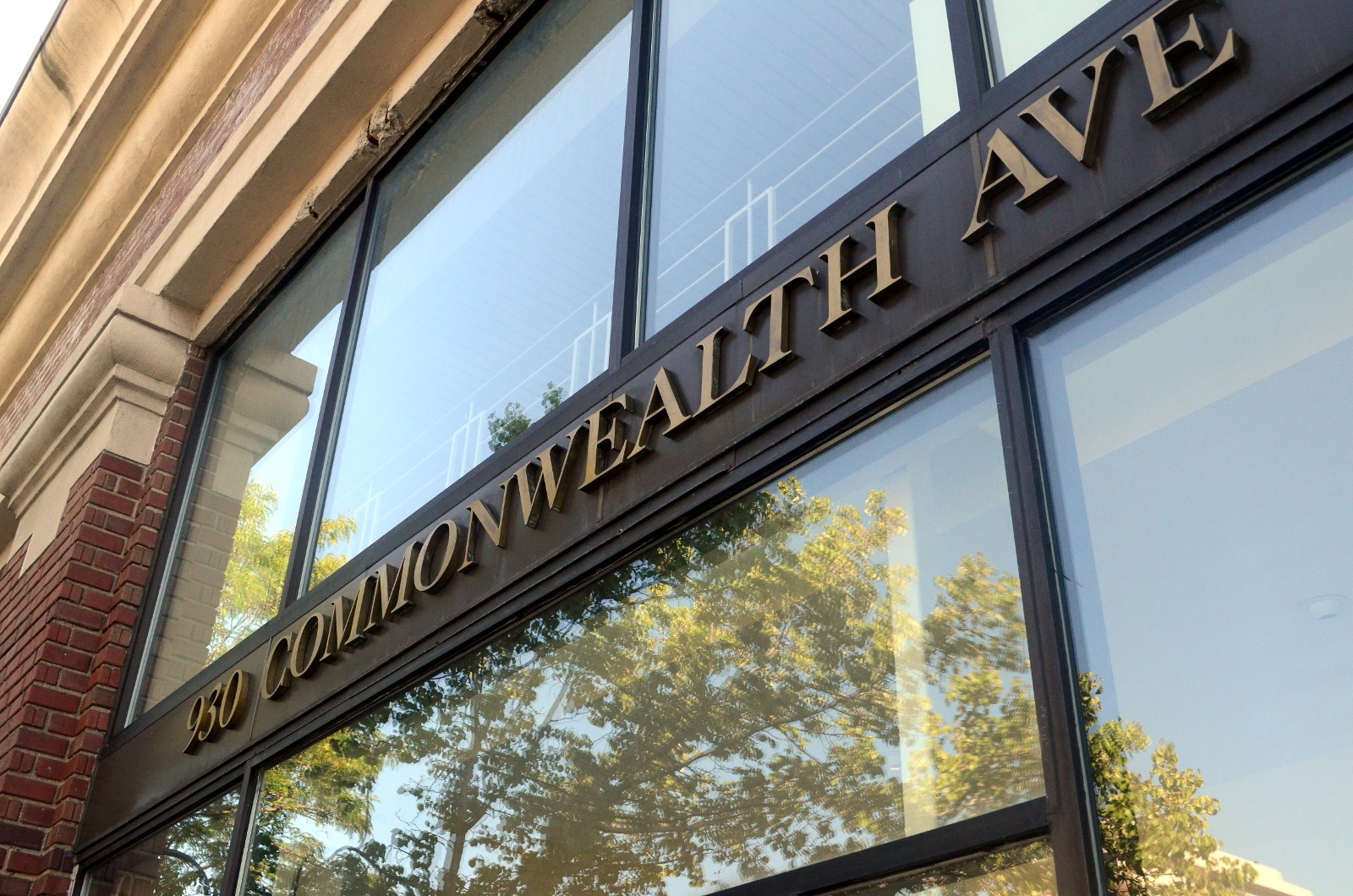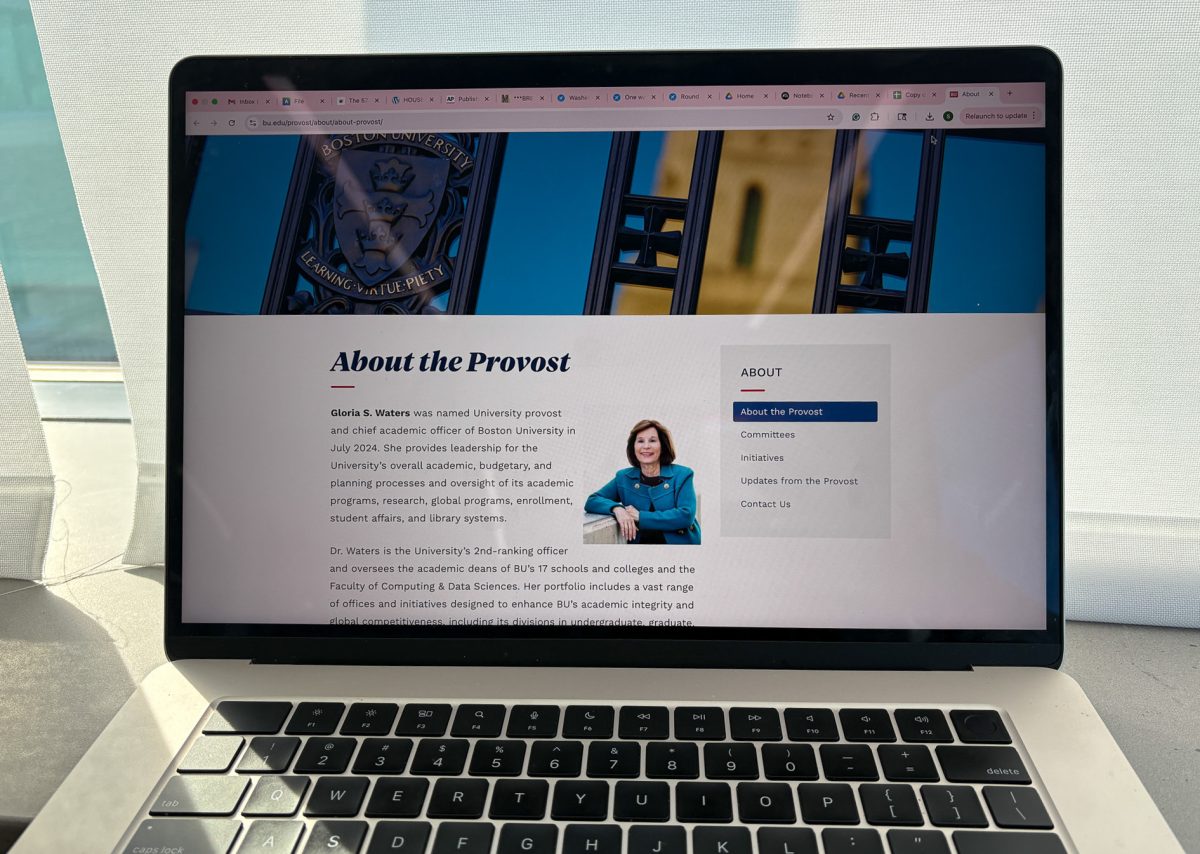
The Department of Justice’s Office on Violence Against Women announced Wednesday that it will award 27 grants totaling $8.5 million to colleges around the country in order to enhance programs to reduce sexual assault, domestic violence, dating violence and stalking on campus grounds.
Boston University was not on the list of schools to receive a grant.
Awards are made with funds from the Grants to Reduce Sexual Assault, Domestic Violence, Dating Violence, and Stalking on Campus Program, according to the Wednesday release. The program encourages higher education institutions to develop “coordinated and comprehensive” campus and community-based strategies to address and prevent the crimes for which it is named.
In the release, OVW Principal Deputy Director Bea Hanson said that extensive advocacy from colleges ensures achievable goals of safety and healing.
“Coordination between on-and-off campus victim services organizations and the local criminal justice system is critical to providing holistic support and services that victims need and ensuring that perpetrators are held accountable,” she said.
Maureen Mahoney, director of BU’s Sexual Assault Response and Prevention Center, said that BU did not meet the application requirements for the grant.
“[During the 2014-15 academic year] SARP applied for and received a grant from the Avon Foundation to develop a pilot Peer Educator program,” Mahoney wrote in an email. “Five BU grad students were trained as facilitators of Step Up Step In BU, our primary prevention program.”
Mahoney added that SUSIBU educates students to be “pro-social bystanders” in preventing identity-based violence that includes sexual assault, dating violence, stalking and sexual harassment.
“The [Peer Educator] model was successful and we have expanded and are currently training six Peer Educators to facilitate SUSIBU this academic year.”
Mahoney declined to comment on why BU did not meet the requirements to apply for the DOJ campus program.
BU has been criticized for its sexual assault prevention policies in the past. The Department of Education named BU as one of 55 colleges and universities that have mishandled on-campus sexual violence and harassment complaints, opening the university to a Title IX investigation, The Daily Free Press reported on May 1, 2014.
BU Dean of Students Kenneth Elmore said that even without the grant, BU has created a variety of programs and strategies to address issues of sexual misconduct.
“We’re trying to make sure we’re on a path to either do or improve what we’ve been working on in regard to prevention, police and safety as well as our disciplinary motions,” he said. “I think many students have encountered the sexual assault prevention that SARP puts up. We’re trying to tweak everything we do. I’d be interested to see for the future if any of the grants would be available.”
Elmore added that BU is going to launch an educational website on sexual assault, a “reference about sexual misconduct” that will require staff and faculty’s test participation and will be extended to students.
Several BU students said they would like to see more accessible educational programs on sexual assault, harassment and dating violence prevention.
Sarah Bradley, a junior in the College of Arts and Sciences, said that ensuring students’ safety and sense of respect should be BU’s highest priority.
“Having SUSIBU on campus is a great start,” she said. “However, I do think there is still a culture of silence on campus, all campuses, not just BU, with regards to sexual assault, and we need to encourage students and faculty to start open and honest conversations.”
Daniel Stone, a junior in CAS, said he believes sexual assault has been a growing issue on college campuses and expects the university to put more emphasis on it.
“There should be more of an open forum at BU because I know there are girls at BU that have been sexually assaulted,” he said. “BU has to provide a platform for these girls on top of the student population. Boston is different because there are people who don’t go to college, as opposed to being in a college town where almost everyone is affiliated with the school.”
Daniel Chelemer, a junior in the College of Communication, said programs like SUSIBU might still leave students unclear as to what is required of them.
“People want to step up, but they don’t want to get themselves in trouble,” he said. “Everyone knows what to look for, but they are scared of doing the wrong thing.”
J.D. Capelouto contributed reporting to this article.
























































































































